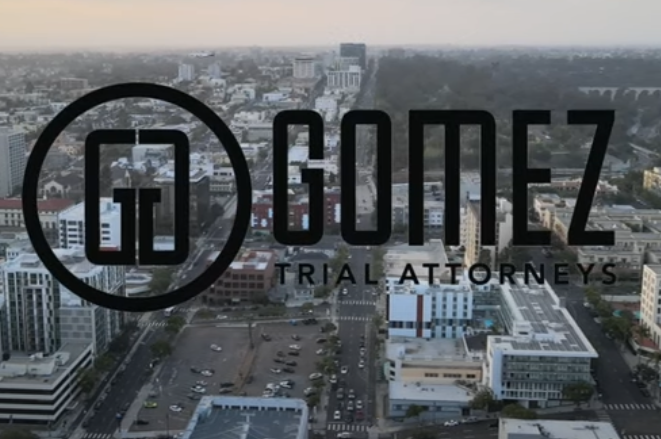Understanding the Basics of a Traumatic Brain Injury
The brain is the most important organ in the human body. It controls even the most basic functions. It allows us to walk, talk, think, and breathe. Because of this, any injury to the brain is serious. A traumatic brain injury can change your life forever and affect the ones you love. If you have sustained a traumatic brain injury due to an accident, a California brain injury lawyer can help you through the recovery process.
What Is a Traumatic Brain Injury?
There are two different types of acquired brain injuries, traumatic brain injury, and a non-traumatic brain injury. Common causes of brain injuries typically are a result of an external factor (such as a strike to the head), whereas a non-traumatic injury happens because of an internal factor (such as a stroke or a tumor). Every year, more than 1.7 million Americans are diagnosed with traumatic brain injuries, often referred to as TBIs. But what exactly is a traumatic brain injury?
According to the Centers for Disease Control, a traumatic brain injury occurs as the result of a bump, blow, or jolt to the head or a penetrating injury that disrupts the normal functions of the brain. The term is broad and covers a wide range of injuries. A TBI can range from a concussion to a serious skull fracture and brain bleed.
How Is a Traumatic Brain Injury Diagnosed?
A traumatic brain injury can create a life-threatening emergency. Because of this, emergency room staff will perform a thorough exam to rule out the possibility of a TBI. Doctors use many tools to determine the extent of your injury. Your account of the injury and the symptoms you experience can affect the tests the doctor feels are necessary. Some initial tests may include:
- Physical exam: If the victim is conscious, this will include a detailed account of the injury. If they are not conscious, they will want to talk to any witnesses. If the patient is unconscious, a doctor will use the Glasgow scale to help determine the patient’s level of brain function.
- X-ray: An X-ray will allow the medical staff to see any skull fractures or other broken bones. However, these tests are limited and only show the skeletal structure. Because of this, a doctor may choose to order a CT scan instead. Though a CT scan may be more expensive, it can provide more information.
- CT Scan: A CT scan can detect some brain abnormalities and skull fractures. According to the Brain Injury Association of America, CT or CAT scans are most often the first imaging test done in a hospital.
- MRI: An MRI uses radio waves and a magnetic field to detect brain activity and blood flow. This scan provides a more detailed view of the brain. However, even MRIs are limited in their diagnostic abilities for TBIs.
Symptoms of a TBI
The scary thing about traumatic brain injuries is that symptoms often don’t appear right away. Some injuries can take days or even weeks to present symptoms. But ignoring symptoms of a TBI can prove fatal; that’s why you need to know common symptoms of a TBI and know when to see a doctor.
The Mayo Clinic recommends that you see a doctor right away if you exhibit any TBI symptoms. For children, you need to take extra precaution. Whenever a child sustains a head injury, you should always take them to the doctor, even if no visible symptoms present themselves.
Common symptoms to look for after an accident include:
- Vomiting
- Headaches
- Dizziness
- Confusion
- Vision changes
- Loss of bowel or bladder control
- Fatigue
- Difficulty speaking
- Memory problems
- Mood changes
- Impulsiveness or other behavioral changes
- Breathing difficulties
- Paralysis
- Loss of consciousness
The symptoms of a TBI will vary from person to person. If you experience any unusual symptoms after a head injury, seek medical care immediately. For a more extensive list of symptoms, click here.
Causes of Traumatic Brain Injuries
Traumatic brain injuries can happen to anyone, of any age, at any place. In fact, you do not even need to strike your had to suffer a TBI. Statistically, young adults, children four and younger, and adults older than 60 are at the highest risk of suffering a TBI. Males of any age are more likely to have a TBI than females. Some of the most common causes of traumatic brain injuries include:
Falls
According to the CDC, falls are the leading cause of traumatic brain injuries in the United States. Young children and older adults are more likely to suffer from a fall injury. The CDC reports that falls caused 49 percent of all TBI related emergency room visits for children younger than 17. A staggering 81 percent of all TBI-related ER visits for adults aged 65 and above were fall-related. For young children, falls from trees, playground equipment, and bikes can cause a brain injury.
Car Accidents
In 2014, motor vehicle accidents were the second leading cause of TBI-related hospitalizations, accounting for 20 percent of these hospitalizations. Motor vehicle accidents were the leading cause of death for TBI-related injuries for young adults ages 15 to 24, adults between the ages of 25 and 34, and older adults ages 75 and older. A motor vehicle accident can cause the head to violently thrash around the vehicle and strike other objects. Serious motor vehicle accidents also carry a high risk of a penetrating head wound.
Sports Injuries
People are paying more and more attention to sports-related head injuries. Studies are beginning to show the long-term effects frequent blows can have on the brain. High-risk sports include football, cycling, basketball, and baseball/softball. According to the AANS, these sports accounted for the highest number of TBI injuries. While swimming may not seem like a high-impact sport, an injury can occur when a swimmer hits the bottom or sides of the pool or collides with another swimmer.
Violence
Domestic violence and assault are also common causes of traumatic brain injuries, but these injuries often go unreported. Common causes include blows to the head, gunshot wounds, and stab wounds.
The Physical and Financial Cost of a TBI
The AANS estimates that traumatic brain injuries incur a direct and indirect cost between $48 billion and $65 billion per year. Extensive injuries can cause lifelong effects. Hospital care and other ongoing services can cost hundreds of thousands of dollars.
If you suffered a traumatic brain injury, a personal injury attorney can help you recover some of these costs. Common costs associated with traumatic brain injuries include:
Hospital Stays
Hospital stays are often the most expensive part of a traumatic brain injury. Even a minor injury can cost several thousand dollars. Long term stays can easily top $100,000. In some cases, the patient may never leave the hospital.
Physical Therapy
A brain injury can have a traumatic effect on the rest of the body. In severe cases, the brain may forget how to perform basic functions, including walking and talking. A physical therapist can help a patient relearn these skills. Physical therapy is often extensive, requiring several sessions a week. This therapy may take place in an inpatient or outpatient facility.
Speech Therapy
Like physical therapy, speech therapy can help a patient recover after a severe injury. A brain injury can involve all levels of speech, including memory recall, enunciation, and word recognition. Speech therapy can require months or years of ongoing treatment.
Nursing Care
After a patient is discharged from the hospital, they may require around-the-clock nursing care. Your personal insurance may or may not cover this cost. Nurses can help with rehabilitation, monitor vital signs, and administer medication.
Long-Term Care Facility
Some traumatic brain injuries can leave the patient in a persistent vegetative state. This means that they have been in a coma for at least one year. These patients need around-the-clock care. As a loved one, you may find that you do not have the resources to provide this care in your own home. Long-term care facilities provide a room for your loved one and on-site medical care. LongTermCare.gov reports that on average, a private room at a long-term care facility costs $253 per day (or $7,698 per month).
Psychological Care
Recovering from a traumatic brain injury can affect the victim and their family emotionally and mentally. It’s not uncommon to feel confusion, anger, depression, and hopelessness. In many cases, a psychologist can help the victim and their loved ones adjust to their new normal and teach them techniques to deal with the associated trauma. This may require extensive treatment and services.
Medications
Traumatic brain injuries can cause chronic pain, difficulties focusing, and other neurological problems. Medications can help a patient recover after a TBI. In many cases, the patient will require these medications for the rest of their life. Often, several medications are necessary, increasing the overall cost.
Home Renovations
After an injury, a person who has suffered a traumatic brain injury may be unable to or have difficulty getting around. In many cases, adaptive devices and other modifications help make the transition home easier. Common modifications include:
- Ramps
- Rails
- Roll-in showers
- Chairs
- Lifts
Recovering Damages After an Injury
These are all extremely expensive treatments, but depending on the cause of the injury, you may be eligible for compensation. A personal injury claim can help you recover the costs associated with your injury. While the specific amount you can recover will depend on the severity and circumstances surrounding your injury, common damages include:
- Medical costs: Traumatic brain injuries can be very expensive. Medical costs can include doctor visits, physical therapy, medication, home health care, and other rehabilitative services.
- Lost wages: Traumatic brain injury can cause an unexpected loss of income. If the injury leaves you or your loved one unable to work, lost wages can include future wages.
- Home modifications: This includes any modifications required to allow you or your loved one to safely move and live in your home.
- Pain and suffering: Pain and suffering cover the invisible costs associated with an injury. This includes physical and emotional distress. Examples include depression, anxiety, and PTSD.
- Loss of enjoyment: A TBI can leave you unable to participate in the activities you enjoyed before. This can range from recreational activities to being able to cook and clean around the house. When this happens, you deserve compensation for this loss.
- Loss of consortium: Loss of consortium is a legal term that refers to the loss of a loving relationship incurred by the loved one of an accident victim. This includes loss of services, loss of support, and loss of sexual relations. Loss of consortium usually applies to the victim’s spouse or children.
The Brain Injury Attorneys At Gomez Trial Attorneys Can Help

Traumatic brain injuries are different than any other type of injury. These injuries can change a victim’s life dramatically. But it’s more than that: Traumatic brain injuries affect the entire family. They require tremendous financial resources and can be physically and emotionally draining for everyone involved. Thats why seeking legal assistance through a skilled brain injury firm is within your best interest.
Money can’t take away the pain and trauma that you and your family feel, but it can take away some of the financial burdens.
Understanding your rights after a traumatic brain injury can help you begin to heal and move on. Sadly, insurance companies often undervalue injuries and try to get away with giving you less than you deserve. By contacting an experienced TBI attorney they can help you fight for a fair and just settlement. If you or a loved one has suffered a traumatic brain injury due to someone else’s negligence, contact a personal injury attorney to learn more about your rights.







